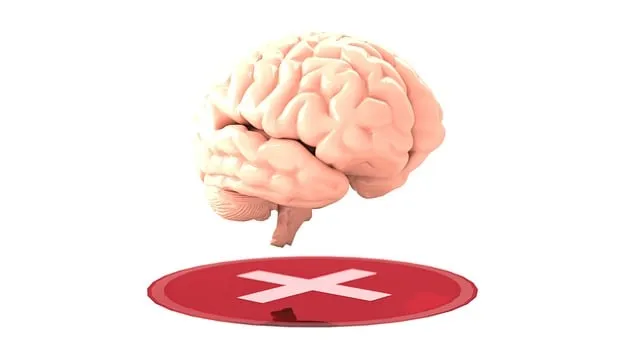Louisville Kaiser Permanente behavioral health services prioritize cultural competency, offering specialized training to healthcare providers on diverse cultural norms and coping strategies. This approach ensures personalized care for patients from various ethnic backgrounds, fostering an inclusive environment and improving overall patient satisfaction. Through holistic programs, workshops, and immersive training, they promote mindfulness, self-care, and effective mental wellness journaling, addressing physical and mental well-being symbiotically. Evaluations measure the impact of cultural competency training on healthcare delivery, refining services to cater to diverse patient needs.
Healthcare provider cultural competency training is essential in delivering inclusive care that respects and understands diverse patient backgrounds. This comprehensive guide explores critical aspects of cultural competency, highlighting practices from Louisville Kaiser Permanente’s behavioral health services. We discuss effective cross-cultural communication methods, strategies for overcoming barriers to inclusive care, and successful evaluation techniques for cultural competency programs. By integrating these insights, healthcare providers can enhance patient outcomes and foster more nurturing environments.
- Understanding Cultural Competency in Healthcare
- Louisville Kaiser Permanente: A Focus on Behavioral Health
- Training Methods for Effective Cross-Cultural Communication
- Overcoming Barriers to Delivering Inclusive Care
- Measuring Success: Evaluating Cultural Competency Programs
Understanding Cultural Competency in Healthcare

Cultural competency is an essential aspect of healthcare that involves understanding and respecting diverse cultural backgrounds, beliefs, and values within a patient population. It’s about recognizing that people’s experiences, traditions, and perceptions can significantly influence their approach to health and wellness. In Louisville, Kaiser Permanente behavioral health services have been at the forefront of promoting this concept, ensuring that patients from various ethnic and cultural groups receive care tailored to their unique needs.
This training empowers healthcare providers to deliver effective services to a diverse range of individuals. It involves learning about different cultural norms related to mental health, coping with stress, and seeking support, such as those offered through Stress Reduction Methods and Mental Wellness Coaching Programs Development. By developing Coping Skills Development strategies that cater to these diverse needs, healthcare professionals can foster an inclusive environment, improve patient satisfaction, and ultimately enhance the overall quality of care.
Louisville Kaiser Permanente: A Focus on Behavioral Health

Louisville Kaiser Permanente stands out for its dedicated focus on behavioral health services, recognizing the deep connection between physical and mental well-being. The healthcare provider offers a range of programs aimed at enhancing mindfulness, promoting self-care routines, and providing guidance through effective mental wellness journaling exercises. These initiatives reflect a holistic approach to healthcare, where the emphasis is not just on treating illnesses but also on fostering overall resilience and mental wellness.
Through various workshops and training sessions, Kaiser Permanente empowers individuals to integrate practices like mindfulness meditation into their daily lives. By encouraging patients to engage in these self-care activities, the organization facilitates better stress management and improved mental health outcomes. Such proactive measures exemplify Louisville Kaiser Permanente’s commitment to meeting the diverse needs of its community, ensuring that mental wellness is treated with the same level of care and consideration as physical health.
Training Methods for Effective Cross-Cultural Communication

Effective cross-cultural communication is a cornerstone of Louisville Kaiser Permanente behavioral health services’ commitment to providing culturally competent care. Training methods go beyond mere knowledge transfer, focusing on experiential learning and role-playing scenarios that mimic real-life interactions. These immersive approaches help professionals build resilience in navigating cultural differences, fostering cultural sensitivity in mental healthcare practice. By participating in these exercises, providers learn nuanced techniques for stress reduction methods, allowing them to create safer, more inclusive spaces for patients from diverse backgrounds.
The training incorporates a holistic view of cultural competency, emphasizing active listening, open-non-judgmental body language, and adaptive communication strategies. These skills are essential in bridging gaps between healthcare providers and individuals from various cultural, linguistic, and socio-economic groups. Through interactive workshops and ongoing support, Louisville Kaiser Permanente ensures that its behavioral health services team is adept at handling the emotional nuances associated with cross-cultural interactions, ultimately enhancing patient outcomes and satisfaction.
Overcoming Barriers to Delivering Inclusive Care

Overcoming barriers to delivering inclusive care is a critical aspect of cultural competency training for healthcare providers. Louisville Kaiser Permanente behavioral health services recognize that diverse communities have unique needs and experiences shaped by their cultural backgrounds, socioeconomic factors, and historical contexts. To provide effective care, mental health professionals must navigate these complexities with empathy and understanding.
Cultural sensitivity in mental healthcare practice involves adapting communication styles, building trust through culturally relevant engagement, and integrating emotional well-being promotion techniques tailored to diverse populations. By embracing these principles, Louisville Kaiser Permanente’s behavioral health services aim to create a safe and supportive environment where individuals from all backgrounds can access and benefit from mental wellness coaching programs development. This holistic approach ensures that care is not only competent but also inclusive and respectful of the rich tapestry of human experience.
Measuring Success: Evaluating Cultural Competency Programs

Evaluating the success of cultural competency training programs is a vital step in ensuring their effectiveness and positive impact on healthcare delivery. At Louisville Kaiser Permanente behavioral health services, we utilize various methods to assess the outcomes of our initiatives. This involves collecting feedback from both participants and patients to gauge improvements in cultural sensitivity and awareness. Pre-and post-training surveys help measure knowledge gain and attitude shifts, providing quantifiable data on progress.
Additionally, observing changes in patient interactions and treatment outcomes over time offers valuable qualitative insights. By tracking reduced instances of misunderstandings or miscommunication due to cultural differences, we can demonstrate the tangible benefits of our programs. These evaluations are instrumental in refining our approaches, ensuring that stress management and anxiety relief techniques, for instance, are tailored to meet the diverse needs of our patient population, ultimately contributing to improved Stress Reduction Methods within our healthcare services.
Healthcare provider cultural competency training is not just a best practice, but an essential tool for delivering inclusive and effective care. As demonstrated by Louisville Kaiser Permanente’s focus on behavioral health services, organized programs that emphasize cross-cultural communication can significantly improve patient outcomes. Overcoming barriers through diverse training methods ensures healthcare professionals are equipped to navigate complex cultural landscapes, ultimately fostering more compassionate and competent care environments. By continuously evaluating success through measurable programs, the industry can ensure these initiatives remain effective in meeting the evolving needs of a diverse patient population.






